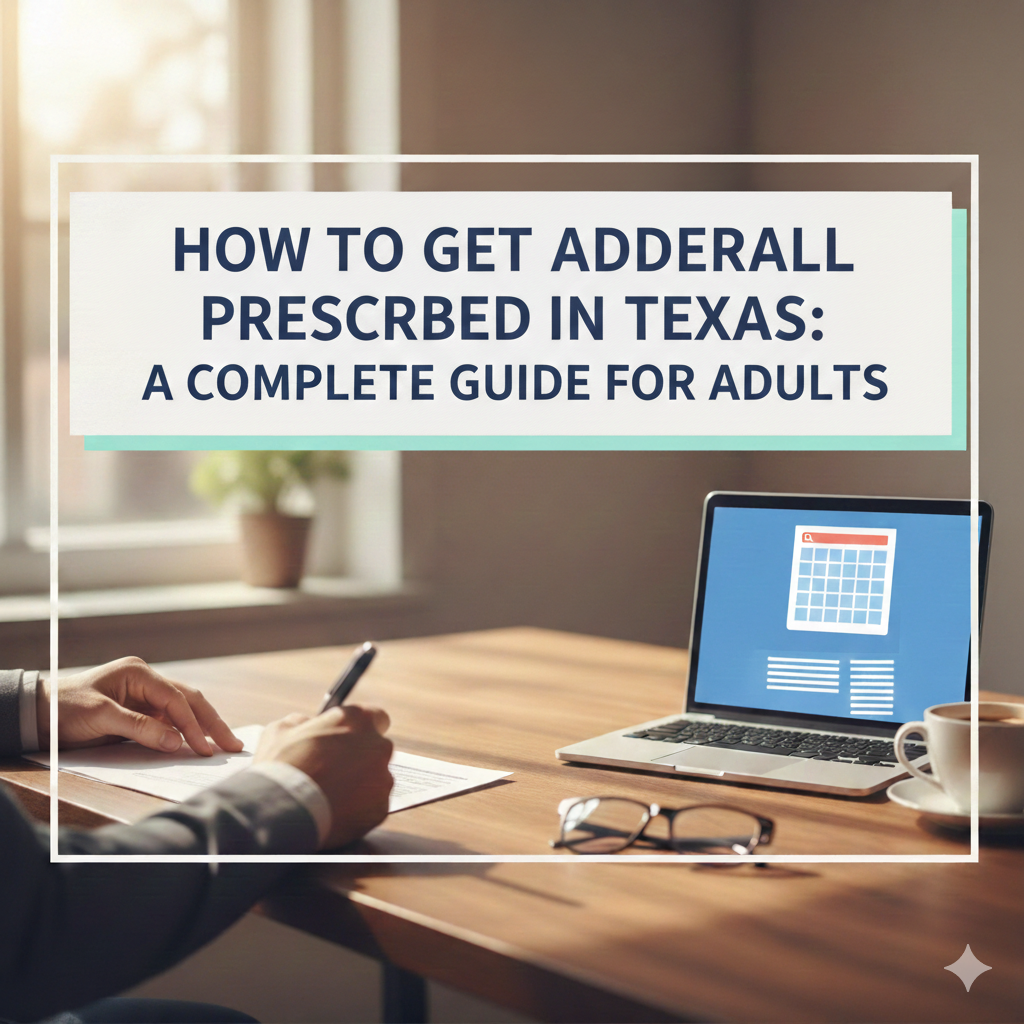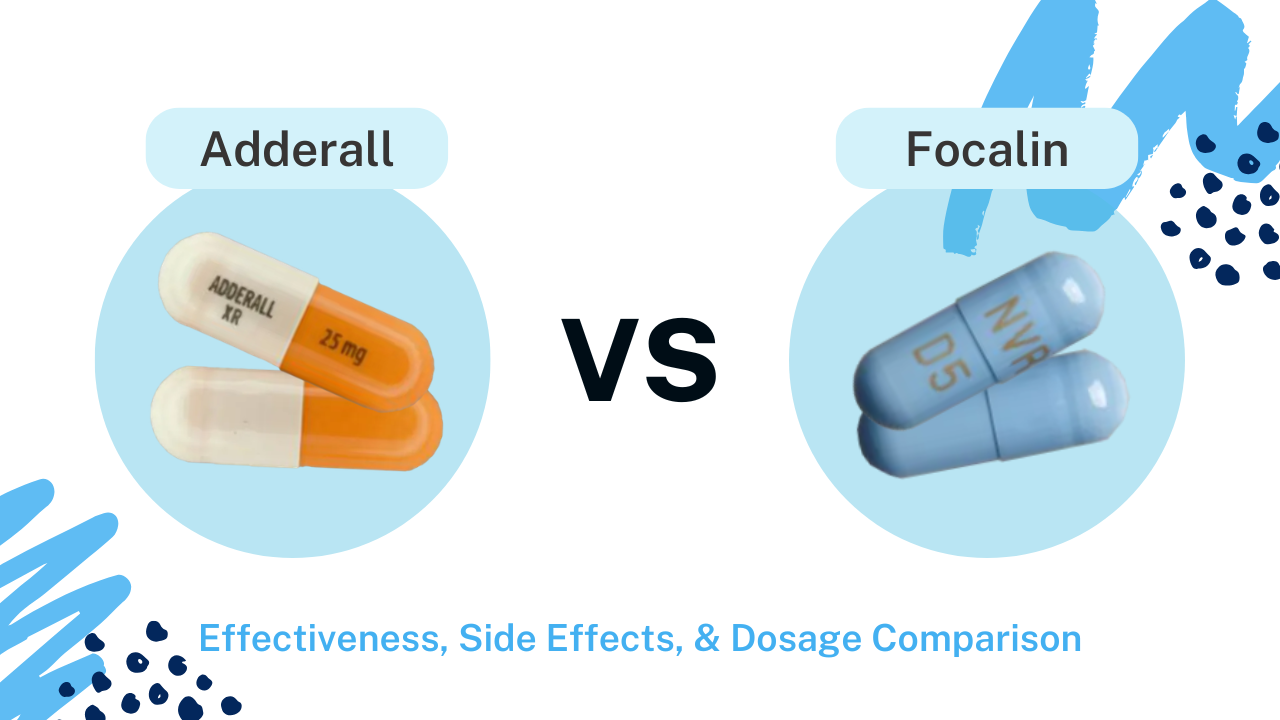Same Day Online ADHD Diagnosis
ADHD assessment?
You constantly zoned out in your least favorite classes, and when your teacher called on you, you froze. Getting scolded for not knowing the answer might have led to an intense wave of shame and sadness, taking over your mood until you could escape the room. Why were some things so much harder for you than for everyone else?
Maybe you were called a daydreamer, dramatic, or just plain lazy. But you were also incredibly creative, along with being sensitive. Back then, though, mental health wasn’t an everyday word, and you probably felt like something was “wrong” with you because you didn’t fit the mold.
If that sounds familiar, it wasn’t just a “lack of discipline”. Undiagnosed ADHD makes certain things in life much more difficult (and other things easier). The ADHD brain really does work differently, and school life was not set up to work with it.
Read on to learn the signs that were likely there all along, and how to move forward with the support you need. While ADHD can come with some challenges, there is something beautiful in it. Whether you can quickly see patterns others can’t see, think big and outside the box, respond with fast wit and humor, hyperfocus, empathize and connect, feel entrepreneurial, or get extraordinarily creative, it’s there (it might just be dampened or untapped after years spent trying to mask the unique parts of you).
With tools and strategies that work for your lifestyle and needs, a better quality of life is possible. Understanding how your unique brain works is the first step towards working with it, not against it.
Connecting the Dots from Childhood to Adulthood
If you think you have ADHD, you might look back on your time in school, whether it’s elementary or university, with a new understanding. It might’ve been a time in your life that really zapped your self-esteem — you couldn’t seem to hand in assignments on time, you knew you could do better on tests, and everyone else seemed to do so much better with less effort.
Now in adulthood, you might still be struggling with some of the same issues. Maybe you can’t get any motivation to do work tasks until the very last minute (or later), and a basic to-do list feels too overwhelming to start. You might have plenty of projects you want to work on or start, but finishing them feels impossible. And yet, you’re smart. Creative. Ambitious. So why does life still feel so hard?
That’s exactly what undiagnosed ADHD in adults can look like.
Common School Struggles Linked to ADHD
You might’ve been punished or looked down on for being “lazy” or “forgetful”. Now, as an adult, you can recognize that you didn’t have some character flaw — everything that was harder for you was likely a sign of ADHD that went unnoticed.
Some red flags during childhood and adolescence include:
- Getting easily upset when someone rejects or criticizes you.
- Feeling unable to start a project until the very last minute before the deadline.
- Consistently pulling all-nighters and staying up late before exams to cram (since studying regularly beforehand kept escaping you).
- Zoning out during class, getting lost in daydreaming, doodling, or just fidgeting.
- Feeling like you couldn’t concentrate, no matter how hard you tried.
- Constantly forgetting things, like deadlines or school supplies.
- Getting labelled as difficult, dramatic, or lazy.
- Being able to get lost for hours and lose complete track of time doing things you enjoy.
- Getting intensely reactive and upset when you weren’t allowed to do what you love, or stop doing what you hated.
For many, these struggles were never fully validated, making them painful memories. Awareness around mental health simply wasn’t a thing back then, meaning millions of adults can relate to this pain. Now, though, you can take steps toward healing those wounds and move forward — with more tools and support available than ever before.
How ADHD Shows Up in Adults
ADHD can sometimes be much more noticeable from university onwards, when life stressors build up — making the little things you didn’t use to need more evident (like excellent time management). Some people may not even realize it until they go through a particularly hard life event, like going through a divorce and having to start life over again on their own.
Signs and symptoms of ADHD in adults often show up as:
- Chronic procrastination or poor time management:
You sit down to work, but all of a sudden, 30 minutes have passed by, and you’ve been on your phone or gone down a Reddit rabbit hole. - Difficulty focusing during meetings:
You’re pretending not to be on your phone or fantasizing about your weekend, but it’s just too boring to pay attention. - Interrupting others in conversations:
You don’t mean to, but you have to say what’s on your mind as soon as you think it. - Getting reactive and easily upset with little things:
Like when someone doesn’t understand you or you have to wait in line for longer than you’d like. - Forgetting appointments or consistently running late:
Even when you set an alarm to leave early, you find other things to do. - Struggling with organization:
Your inbox, clutter, and work assignments get away from you. - Making impulsive decisions:
Maybe buying a ton of new clothes you (really) didn’t need.
In general, you might feel deeply sensitive or reactive, overwhelmed by running errands and daily tasks, and stuck in a cycle of perfectionism and paralysis.
Why ADHD Often Goes Undiagnosed Until Adulthood
Millions of adults have undiagnosed ADHD, and for many reasons. One of the biggest being that awareness around the vast spectrum of what it really is simply didn’t exist until more recently. Even just a decade ago, ADHD had a very specific stereotype and flew under the radar for most people because:
- Either no one knew about it, or wanted to admit it. Even ten years ago, the word mental health wasn’t used as much as it is today (nor was ADHD). You can’t diagnose something you either don’t know exists or is meant for “extreme” cases.
- It was meant for hyperactive boys who couldn’t focus. The label mostly existed for the really “difficult” children that no one knew how to work with — particularly boys who wouldn’t “behave”. A diagnosis was also more common for white children than for other ethnicities.
- Most thought it was just a matter of self-discipline and habit. Since few people understood what ADHD was, all the signs and symptoms could be written off as problems with discipline or some character flaw.
How to Get Diagnosed with ADHD as an Adult
Getting an ADHD diagnosis can feel overwhelming (especially if you’re already feeling stressed and overwhelmed by daily life). Fortunately, getting a diagnosis is becoming easier and easier. Depending on the platform you use, you may even be able to get a same-day appointment and have your diagnosis within a few days.
Here’s how to get started:
- Find a primary care provider (PCP) or mental health professional licensed in your state who can diagnose ADHD. You can choose in-person or an online platform like ADHD Advisor, where you’ll automatically be matched with a licensed professional in your area.
- Fill out the questionnaires and schedule your clinical interview. The forms can take 10-20 minutes, and the interview can take 1-2 hours. You’ll be asked about daily life and medical history to assess for symptoms.
- Get your diagnosis. The clinician will let you know shortly after you interview if you were approved for an ADHD diagnosis, and will give you any documentation and treatment plan necessary.
If you’re not convinced it’s worth it, you can also start by taking an online ADHD test for adults to find out if you’re likely to have it or not. That way, you can avoid going through the whole process if you’re not sure.
Treatment and Support for Adult ADHD
Managing ADHD in adulthood is about finding the right mix of tools, support, and strategies that actually work for you. Once you get a diagnosis (and even before then), you can look into research-backed treatment options, like therapy or coaching.
Talk Therapy and Coaching
When it comes to treatment, ongoing talk therapy is highly recommended by professionals — whether or not you take medication. Research shows it’s highly effective for developing specific tools and strategies to manage your unique symptoms and lifestyle. You’ll learn how to manage time more effectively, initiate and follow through on tasks, and cope with intense emotions.
Some of the best options include:
- Cognitive Behavioral Therapy (CBT)
- Helps you identify unhelpful thought patterns and learn how to challenge them, working towards better emotional regulation.
- Helps you identify unhelpful thought patterns and learn how to challenge them, working towards better emotional regulation.
- Problem Solving Therapy (PST)
- Gain a practical and action-oriented combination of therapy and coaching. Teaches you how to break overwhelm and develop problem-solving skills that prevent spiraling and help you develop a structured approach to issues.
- ADHD Coaching
- Get practical tips like learning how to build routines and systems to suit your lifestyle, like scheduling and staying on task.
- Support Groups
- We can’t underestimate how beneficial it is to connect with others who get it. Meeting other adults with ADHD can be life-changing. These groups are full of support, with practical strategies and much-needed validation for struggles shared.
Medication
On top of talk therapy or coaching, medication is a common treatment for adults with ADHD. For many, it helps increase focus, reduce impulsivity, and improve daily task functioning. It’s not for everyone, and it can take some time to find the right mix that doesn’t come with heavy side effects.
The two most common medications are stimulants (like Adderall or Ritalin) and non-stimulants (like antidepressants). You can get an online prescription; however, some states won’t prescribe stimulants unless you get an in-person evaluation.
You’re Not Alone: Stories of Late Diagnosis and Growth
You might not have noticed you worked differently until university, when school got really hard and all-day-long focus was needed. How come everyone else could sit in the library for hours on end, staring at their books, while you sat there staring at the wall, your phone, or pretty much anything else that wasn’t an incredibly dry textbook?
You still didn’t know it was ADHD, but you knew you had it harder than everyone else, and your self-esteem started slipping.
As you went through life, you’ve probably set new goals (or repeated the same ones) hundreds of times, and promised yourself that tomorrow will be different. You’ll look for a new job, “never” miss another deadline, or go back to school one day.
And yet, it’s always the same: set the goal, try, “fail”, repeat — and this pattern is the perfect recipe for losing your self-confidence (and developing depression and anxiety). This is a pattern many adults with ADHD know well. You spend years blaming yourself, not knowing that this struggle has a name and reason.
And because adult ADHD symptoms overlap with anxiety, depression, and sleep issues, it went misdiagnosed or dismissed — just one of the reasons why it’s difficult to diagnose ADHD in adults. In fact, sleep disorders might affect up to 70% of adults with ADHD.
Fortunately, once you recognize it’s ADHD, things can begin to shift.
It’s Never Too Late to Understand Yourself
Getting an ADHD diagnosis won’t “fix” everything overnight, but it can lead to an important domino effect of benefits.
Once you know, you don’t have to keep beating yourself up and feel like something’s inherently “wrong” with you. The relief in negative self-talk can take a massive weight off your shoulders, and potentially, give you space to reach out for support and research management strategies.
Now, you can find out how to work with your patterns and set up your day in a way that suits you — rather than constantly fighting yourself. Plus, you can start to notice all the perks, like quick wit, resourcefulness, an excited attitude that you love to share when you get a new idea, a curious and entrepreneurial spirit, and creativity that can come in the form of interesting problem-solving or innovations.
Curious to find out if you have ADHD? Get started today with a short quiz to see if getting a diagnosis is the right path for you.
FAQs
Can ADHD show up later in life?
ADHD is a neurodevelopmental condition, meaning it’s present from childhood. However, you might not notice the symptoms until adulthood. This is often because added responsibilities and stress can make ADHD more visible and impairing.
Do women experience ADHD differently?
Women often experience ADHD differently from men. They might be more likely to notice emotional dysregulation (mood swings, irritability, etc.) and inattentiveness (disorganization, forgetfulness, etc.), which can be more easily ignored or diagnosed as anxiety and depression.
Will a diagnosis help me get accommodations at work?
A formal diagnosis is more likely to help you get accommodations under disability laws, but it can also depend on where you live and work.





.svg)
















